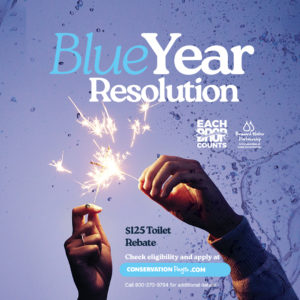As the three-year mark approaches of the devastating earthquake in Haiti that killed, injured and displaced hundreds of thousands of people, actor- activist Sean Penn describes life in the country’s capital city. In the January issue of Esquire magazine, Penn compares Port-au-Prince to Detroit, saying, “It’s not more dangerous, it’s not less dangerous.”
Penn founded a relief organization in response to the 2010 earthquake in Haiti. He still spends about half his time there.
The two-time Oscar winner says a child with a fever in the U.S. gets medicine, a cold bath, or a trip to the emergency room. In Haiti, he says, parents wait “to see if he’s going to die or not.”
The January issue of Esquire goes on sale Dec. 18.
Here is a few highlights from the interview:
My son had a skateboard accident where he almost died. He had emergency brain surgery. This was before he turned eighteen — he’s nineteen now. And when he was recovering, seeing the morphine go into him and give him relief created kind of a love affair for me with morphine and that usage of it. It had already been eight months of divorce and shit, and raising a kid that’s going through the divorce himself, and then this fucking thing happens. He’s 100 percent now, no brain damage — he’s great. Got a few scars, but he’s great. But it was a tough, tough time. When he got out of the hospital and he’s with his mother after being with me for six months, I thought, Wow, I can actually go on a date. And so I go out and I strike out four nights in a row, drinking at a bar and ending up home, you know, drunk. And on the fourth day I said, “I could just go sit in the middle of the bed and watch TV at four in the afternoon, too. I don’t have anything.” My daughter’s eighteen and she’s doing her thing, my son’s with his mother. So I turned on the TV and there was this earthquake in Haiti.
One of the first reports I saw, they were doing trauma surgeries, amputations — children, with no IV pain medications. Now, my joke has always been that an actor in Hollywood knows where to find narcotics but not bulk narcotics. And they needed about 350,000 vials of morphine and ketamine. So I started putting a little ragtag team together to locate the drugs, and talked to the State Department and Southern Command to get a slot to land — the airport was crazy at that time. And that’s what got us there. But the road started with the most obvious kind of trauma — my son’s head — and then to get to a place that had been just so devastated and traumatized, and then to see that in fact most of the trauma actually predated the earthquake. You had a country that had never experienced anything that related to comfort, and out of that you had great trauma — but also this great strength that, I think, we all benefited from.
That’s part of the cultural thread that can be shared between the countries. If you think about how pussified this country has become, right? Haiti is so far from being pussified.
In the beginning, my thing was always blackmail. I would say, “If you don’t fxxxx’ do x, y, and z, I’m gonna go on fxxxn’ CNN and I’m gonna fxxxn’ let the world know!” And sometimes I would get mocked because the bottom line is that yes, it’s funny. It’s funny to have this sniveling actor in there — and you can make fun of it, but the fucking easiest thing in the world is to convince people not to write a check. And that’s not funny to the people who need the money.
Trauma is a thread through all of it. You know where to apply yourself because it starts to make sense why people do some of the things they do.
In my teens, I fell in love with the movies. And so when I got involved in the movies, I was a genius in terms of how the movies that were made in the generation that inspired me got made — but now the financing wasn’t there to do ’em anymore. Trauma. I’m caught in a business that I’m in love with the idea of — the whole process that’s possible. Only now they’re not making movies — they’re representing them.
When I was growing up and somebody like Robert De Niro had a movie come out, it was a cultural event. Because he had such a confidence and a single mission that was so intimate. But when people start using themselves as instruments of a kind of consumerist mosh pit, they’re helping that take over. I mean, you are a soldier for it or you’re a soldier against it. That’s all there is to it. And we have so little of that intimacy left, it’s no wonder that interpersonal relationships have become text relationships. It’s a texting orgy. When is somebody gonna sit there, with their mate or their child, and just look them in the eye and say, “I love you?” When is that life??
I’m just not a big-budget kinda guy, you know?
In school I was a genius of the year preceding the year I was in, every year.
There is no shame in my saying that we all want to be loved by someone. As I look back over my life in romance, I don’t feel I’ve ever had that. I have been the only one that was unaware of the fraud in a few of these circumstances blindly. When you get divorced, all the truths that come out, you sit there and you go, What the fuck was I doing? What was I doing believing that this person was invested in this way? Which is a fantastically strong humiliation in the best sense. It can make somebody very bitter and very hard and closed off, but I find it does the opposite to me. – SOurce




















